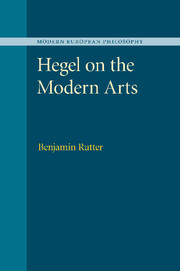Summary
It is in literature that Hegel finds the most promise for the post-romantic arts, and it is in Germany in particular that the “practical rules” and neo-classical strictures of eighteenth-century aesthetic theory have been “violently cast aside … owing to the appearance of genuinely living [lebendige] poetry” (LFA 20, xiii:37). Nor is the choice parochial: if it comes to naming the minor golden ages of modernity, surely the German literature of the age of Goethe stands with the American Renaissance of the 1830s–60s, the Russian literature of the 1830s–90s, and the transatlantic modernism of the 1890s–1940s. The short story was essentially invented by Tieck, Kleist, and Hoffmann. Drama saw the arrival of Faust and Schiller's tragedies. Meanwhile, leaving The Sorrows of Young Werther aside, a new tradition in the novel is founded in Wilhelm Meister. Strikingly, none of these works seems to Hegel to point a way forward; it is the lyric, instead, that draws his attention. Even here his choices appear eccentric, however. The most influential tradition is that of the Romantic lyric that Goethe essentially invents in early poems like “Maifest,” “Es schlug mir das Herz,” and the second “Wandrers Nachtlied”; also important is the output of Schiller's and Goethe's Balladenjahr of 1797–8, contemporaneous with Wordsworth's and Coleridge's. While Hegel admires these works, as he does Robbers and Faust, he tends to view them as one-off projects limited by the poets' temperaments – here, Goethe's inwardness and Schiller's intellectualism.
- Type
- Chapter
- Information
- Hegel on the Modern Arts , pp. 170 - 211Publisher: Cambridge University PressPrint publication year: 2010



